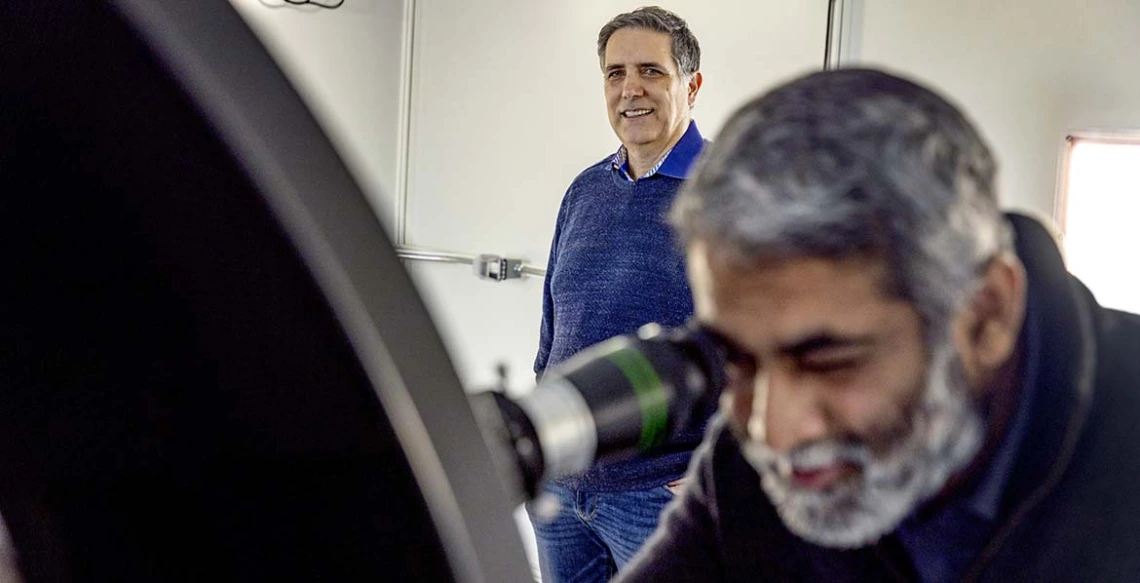New UArizona Center Focuses on Safety, Sustainability and Security in Space
The Space4 Center is a partnership involving the College of Engineering, College of Science, BIO5 Institute and the Office of Research, Innovation & Impact.

Roberto Furfaro, background, and Vishnu Reddy at the Biosphere 2 Space Domain Awareness Observatory.
Now more than ever, orbital space around Earth has become congested, contested and competitive. The University of Arizona's newly established Space4 Center is developing research and education solutions to ensure that use of orbital space remains safe, secure and sustainable for decades to come.
The "4" in the center’s name – which represents "space safety, security and sustainability" – also reflects the strategic areas of the four original university partners that came together to form the center: the College of Engineering, College of Science, BIO5 Institute and the Office of Research, Innovation & Impact.
The center is led by director Vishnu Reddy; deputy director of engineering Roberto Furfaro; deputy director of data science Nirav Merchant, who also leads the university's Data Science Institute and the National Science Foundation-funded CyVerse platform; and deputy director of community engagement Walt Harris.
Between 20,000 and 100,000 new satellites are forecast to be launched into space over the next decade, potentially creating a major traffic jam in space if not managed in a sustainable way, Reddy said.
Earlier this year, Reddy, a professor of planetary sciences, and Furfaro, a professor of systems and industrial engineering, received $7.5 million from the Air Force Research Lab to develop ways to detect, characterize and track objects in cislunar space, or the space between Earth and the moon. The university also operates a Space Domain Awareness Observatory complex, located near Biosphere 2. Reddy, Furfaro and Merchant are long-standing collaborators who, as part of a cooperative agreement with the U.S. Air Force, developed VerSSA, an extension of CyVerse's computational infrastructure focused on space domain awareness.
Much of Space4's focus is on expanding upon the university's strengths by bringing additional interdisciplinary expertise and resources into the fold.

